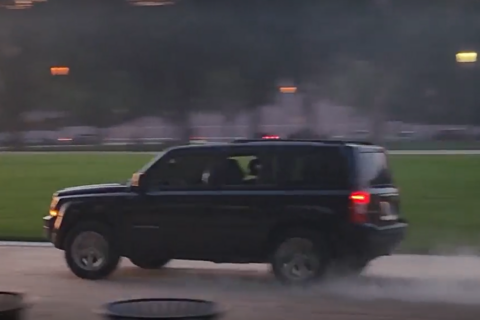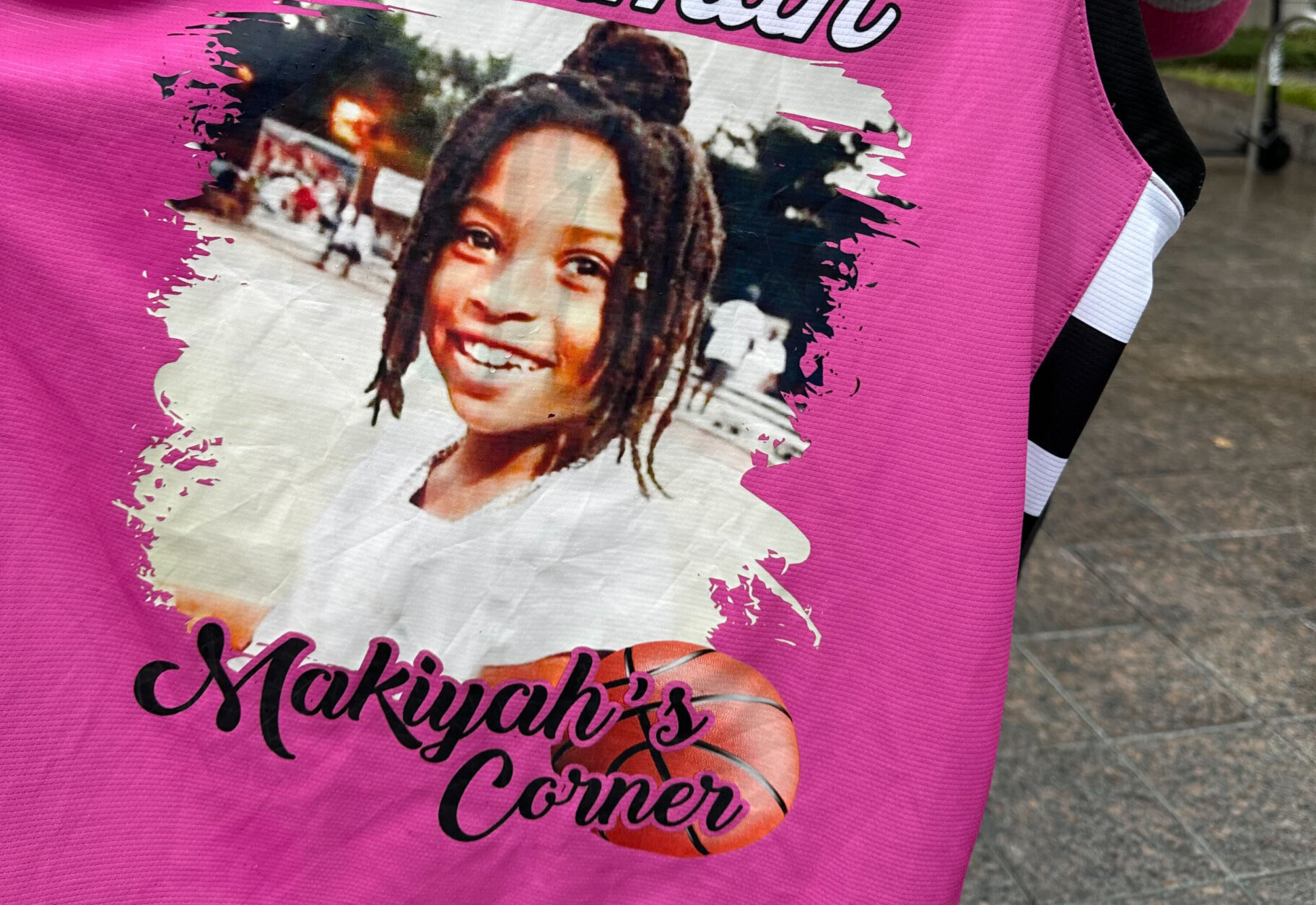
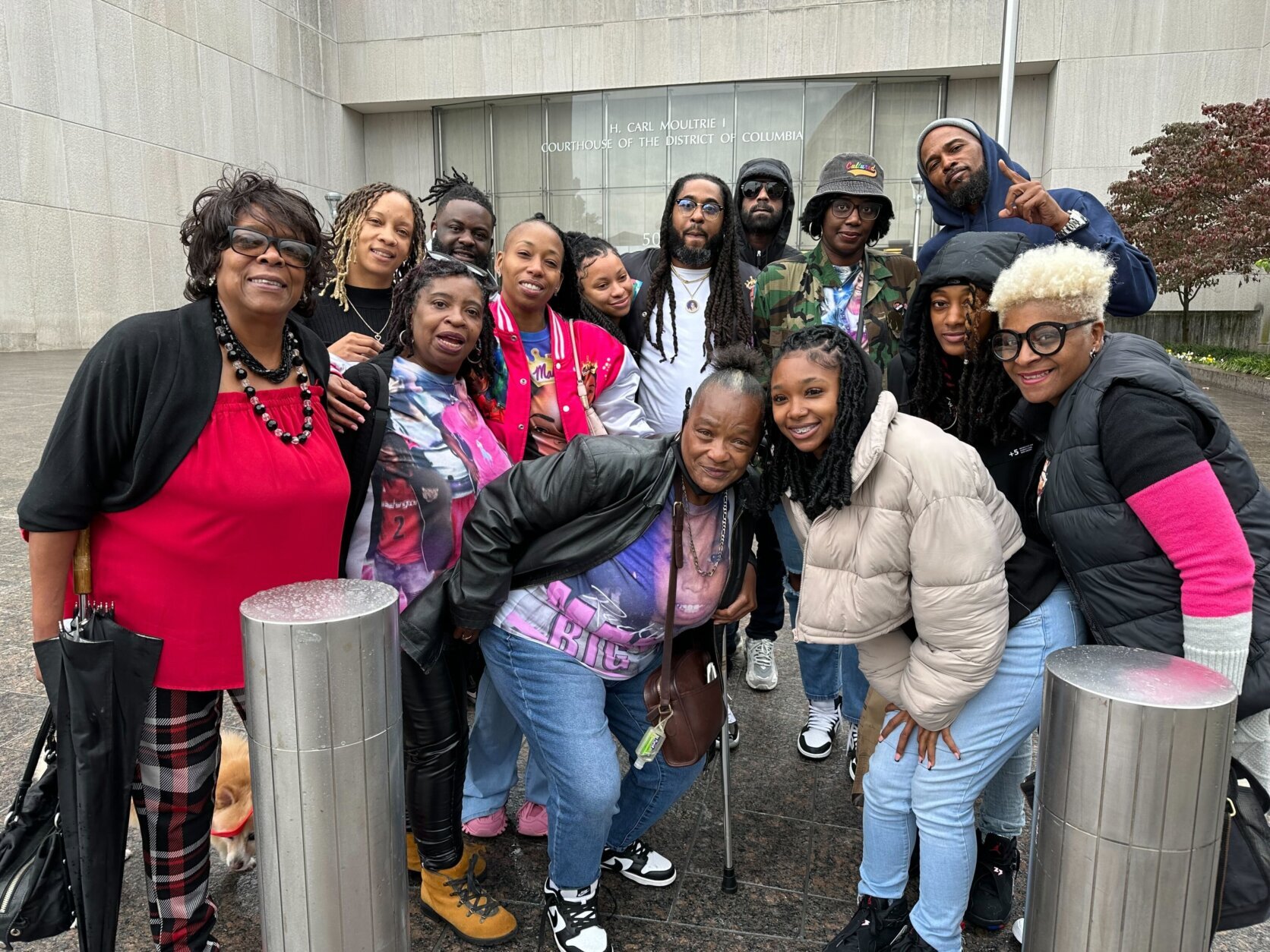
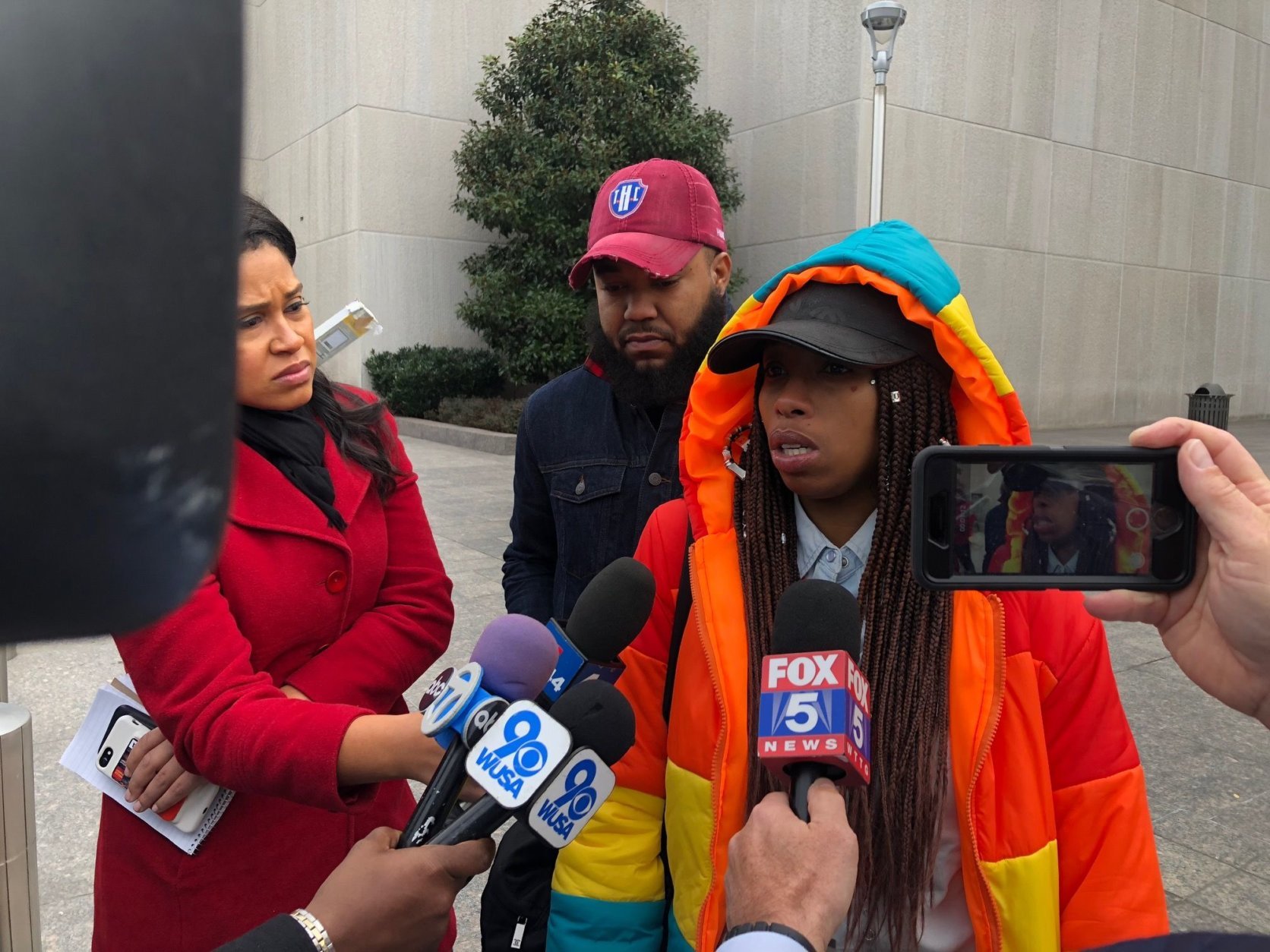

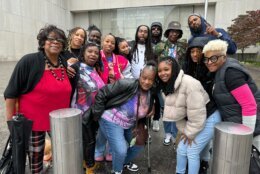
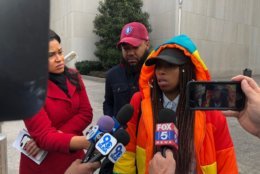
Four men convicted in the shooting death of Makiyah Wilson, who was gunned down in a spray of bullets five years ago, have been sentenced to lengthy, decadeslong prison terms — bringing to an end a five-year legal effort to bring justice in the 10-year-old girl’s killing.
Qujuan Thomas, 24, and Gregory Taylor, 27, are two of the four men who prosecutors said jumped out of a stolen car and opened fire on a crowd of people in July 2018. The two were sentenced to 68 years in prison and 65 years in prison, respectively.
Darrise Jeffers, 23 and Quentin Michals, 25, who prosecutors said helped plan the outburst of violence for months amid a “beef” with a rival neighborhood gang, were sentenced to 35 years and 40 years, respectively.
All four of the men, who prosecutors said were part of the “Wellington Park Crew,” were convicted in June following a sprawling, three-month murder and gang conspiracy trial in D.C. Superior Court. Two other men were also convicted in Wilson’s death and sentenced earlier this month.
The July 16, 2018, shooting in an apartment courtyard in the Clay Terrace neighborhood of D.C. outraged members of the community and public officials.
Wilson had just returned from an ice cream truck when she was fatally struck by a stray bullet in the barrage of gunfire. Four other people were wounded in the shooting, including one man who was shot in the face and had to have his jaw reconstructed, prosecutors said.
“For the victims, the shooting in Clay Terrace happened out of nowhere, with no warning,” Assistant U.S. Attorney Laura Bach said. “It was over in seconds. However, their lives were changed forever. But the evidence introduced at trial showed the men in the Wellington Park crew were headed down this path for months — if not years. If it had not been a courtyard in Clay Terrace on July 16, 2018, it would have been another courtyard and another innocent victim.”
Judge: ‘Truly heinous’
In handing down the lengthy sentences, Superior Court Judge Robert Okun said he was drawing a distinction between those defendants who actually fired the fatal shots and those who aided and abetted the shootings by helping obtain weapons or plan the crime.
Still, the lengthiest sentences handed down to Thomas and Gregory amount to virtual life sentences.
“I recognize that these sentences that I’m going to impose are very long sentences, and I take no pleasure in imposing them,” Okun said. “But given the nature of the crimes in this case, which are truly heinous, and given the applicable sentencing guidelines, I believe that these sentences are fully justified and fully warranted.”
Wrenching victim impact statements
Before the sentences were handed down, Wilson’s mother, father and grandmother addressed the court in victim-impact statements, detailing in wrenching, raw emotion their grief after the shooting.
Donnetta Wilson, a hairstylist, was doing a client’s hair in the family’s first-floor apartment when she heard the gunshots that July night, initially mistaking them for fireworks.
“It’s Fourth of July the whole July in Clay Terrace, so you just don’t know,” she said.
Then her daughters — Makiyah and then 18-year-old Nyjhay Lewis, who had gone out to walk to a nearby ice cream truck for a snack — tumbled back in the front door. She recalled Nyjhay screaming at the top of her lungs — she had been shot in the arm. But Makiyah seemed OK — at first.
Then Donnetta Wilson saw the blood. She had been shot through the heart.
“I don’t know if … you can imagine, in your head, lifting your 10-year-old child’s shirt and her whole chest is gone! That was my baby!” Donnetta Wilson said.
Alongside her grief, she said she has struggled with guilt, too, wishing she had been the one who was shot and not her daughters.
“I have a survivor, and I have a baby in heaven,” she said.
She remembered Makiyah as sporty, a tomboy who loved to play video games and was friendly with practically the whole neighborhood.
“Being a mom of five, I tried to get us out of Clay Terrace. I honestly did,” she said. At one point before the shooting, her older daughter was robbed on the street and then jumped. “I tried to get them out of that. I could not afford it at the time,” she said, her voice breaking down.
In her statement, Pandora Wilson, Makiyah’s grandmother, said the little girl was sadly aware of the gun violence plaguing the neighborhood. She remembered going to pick up Makiyah and the girl jumping inside the car and telling her to drive quickly.
“Grandma, grandma, you gotta drive,” Wilson recalls Makiyah saying. “They be shooting around here.”
She added, “She knew every day she walked out her front door it could be her last. She knew this.”
She suggested the defendants have empty guns glued to their hands and be dropped into a war zone as part of their sentence — to understand the fear of living with the constant threat of gun violence.
“You can’t even lay in your bed and watch TV — you might get a bullet to the head just being in your own home,” she said.
Addressing the men convicted in her granddaughter’s death directly, she said: “What you took from me, can never be replaced.” Then to the judge, she added, “No matter how much time you give them, your honor, it still won’t be enough for me. But I’m grateful for whatever you do.”
‘How much punishment is enough?’
The four defendants have 30 days to file a notice of appeal. All four pleaded not guilty to the charges and defense attorneys strenuously questioned much of the evidence linking them to the case during the trial.
Ahead of sentencing, some of the defense attorneys pointed to the defendants’ youth at the time of the shooting as well as their own traumas they had experienced in their lives in asking for more lenient sentences.
Attorney Jonathan Zucker, who represents Gregory Taylor — who was given one of the lengthier sentences — said his client was 22 when he was arrested in this case.
“He is going to spend all of his 20s in prison; he is going to spend all of his 30s in prison; he is going to spend all of his 40s in prison, he’s most likely going to spend all of his 50s in prison,” Zucker said. “If the court is lenient, he may get out when he’s about 59, or somewhere in his 60s. And I guess the question I have for the government and for the court is: How much punishment is enough?”
Earlier this month, a fifth defendant convicted of killing Wilson — 24-year-old Isaiah Murchison — was sentenced to 60 years in prison. Marquell Cobbs, 21, who was convicted of conspiracy but acquitted of murder and other charges, was sentenced to six years.




